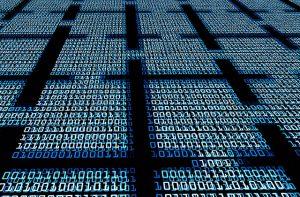 A number of industries, from finance to the public sector are implementing blockchain in their operations - and for good reason. Why is this "new" technology taking the business world by storm?
A number of industries, from finance to the public sector are implementing blockchain in their operations - and for good reason. Why is this "new" technology taking the business world by storm?
The truth is, blockchain isn't new. It was created from a concept over 25 years ago. In the past quarter century, use of the technology has gained momentum as it has morphed into a useful tool composed of data used to track and store transactions.
In its simplest form, blockchain is a distributed database that serves as a secure and unalterable ledger of activity that allows companies to ensure accountability and reliability. A new transaction creates a new block in a specific chain. The information is updated in real-time and stored in decentralized databases, giving usable data that is easy to monitor. It also incorporates a level of accountability and security traditional databases cannot provide, as no employee can cover up a mistake with a database change.
For supply chains, the immediate benefits of blockchain include an expanded level of security, visibility, and traceability. With many moving parts in a supply chain from the products to people, blockchain has the ability to allow multiple parties to transfer and store data in a space that is permanent and easily accessible. This simplifies paper-heavy, disparate, expensive, and logistically complex data systems.
Think of something as simple as a DVCR (Driver Vehicle Condition Report) that a driver populates before and after the completion of a trip. Currently this is a very paper intensive process that should convey the condition of transportation equipment to operations, safety and maintenance. If automated and incorporated into a blockchain, all of the inspection and maintenance information could travel with the equipment throughout its lifecycle. Verification of the inspections, maintenance performance records and recall information could all be part of this blockchain. It ultimately simplifies the asset management and utilization task.
It also allows for better connectivity between suppliers, customers, carriers and others in each supply chain. Through blockchain, all relevant information to a particular supply chain is captured and the data is accessible to all parties involved. This allows for better tracking of pallets and trailers as they move between supply chains or to the sales floor.
Blockchain is already being put to the test in some supply chains. Walmart is using blockchain to monitor produce in its stores. The retailer is using the technology to track pre-packed produce at the individual package level from the farm where it is grown to the supermarket floor it is transported to. And a pharmaceutical company has developed a new seal that incorporates blockchain to track and secure prescription drugs.
With some supply chains already using the technology, experts believe it will not be long before it becomes a universal supply chain operating system.
Blockchain can give better visibility and control across the operation such as keeping track of remittances and cross-border transfers or letting companies know exactly where certain products are in the event of a recall. Ultimately, this saves supply chains time, cost, and liability.
From enhanced transparency and greater scalability to better security and increased innovation, blockchain can strengthen your supply chain. By partnering with a forward-thinking provider that values transparency and leveraging innovative technology, you can make blockchain part of your supply chain's future today.
Written by Tom Kroswek Tom Kroswek is Group Director of Supply Chain Excellence at Ryder. He has over 28 years of experience in supply chain engineering, transportation analysis, and inbound manufacturing support. During his career, he was works in design, supply chain analysis, sales, project management, and operations management.
